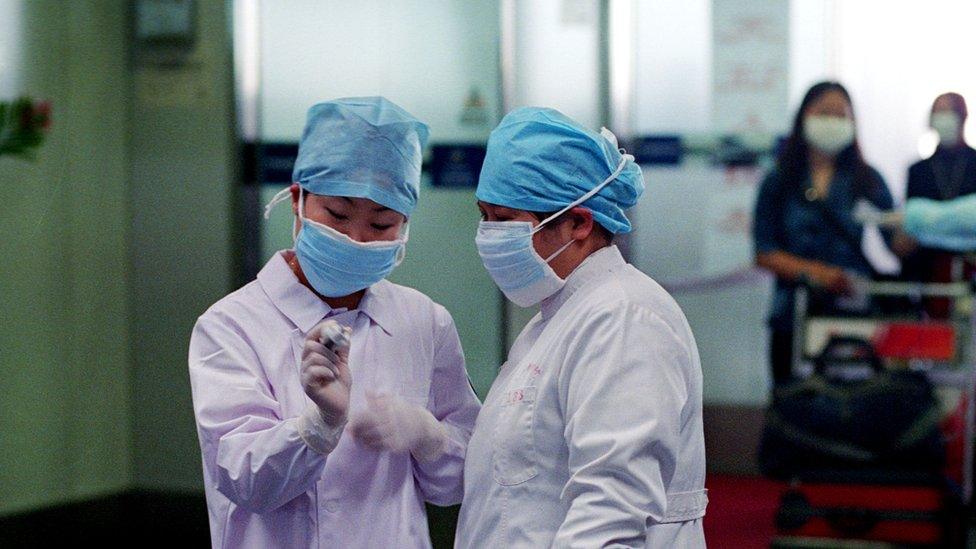Coronavirus: Tales of solidarity from China's virus-hit Wuhan
- Published
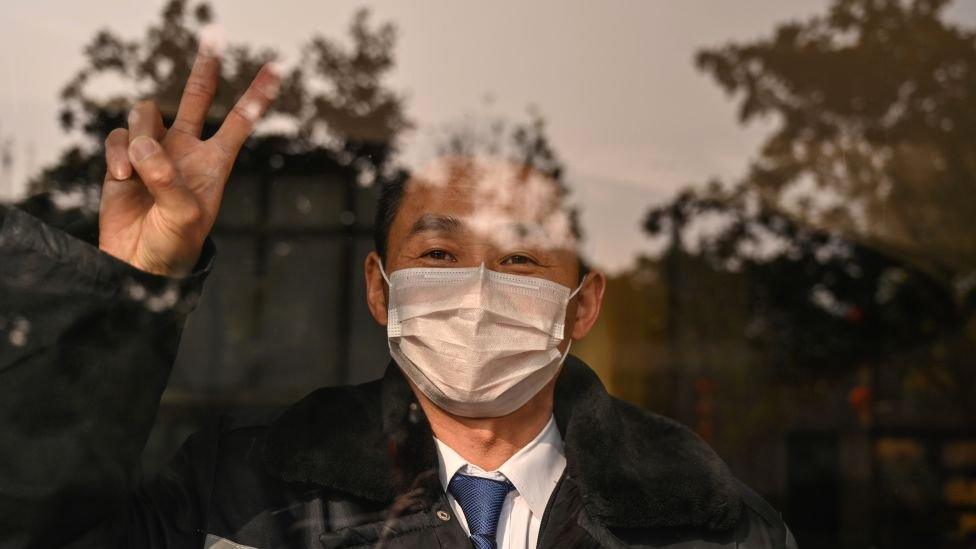
Keeping spirits up in virus-hit Wuhan
As the number of coronavirus infections continues to grow, millions of people have gone into lockdown in Wuhan - the centre of the outbreak - to try to stop the virus spreading. But in this time of isolation some people are determined to raise each others' spirits.
The neighbours who spread cheer
The deadly outbreak comes as China celebrates one of the most important dates in its calendar - Lunar New Year.
Imagine Christmas and Thanksgiving all rolled into one - typically a time filled with lots of cheer. For many, it's the only chance in a year they have to meet up with their family and exchange gifts of food and money.
In Wuhan people have been encouraged to stay home to minimise the spread of the virus. But residents in a block of flats found a small way to cheer each other up.
Videos circulating on social media show people shouting "Wuhan jiayou" out of their windows- roughly translated to "Stay strong Wuhan" or "Keep on going Wuhan".
"Wuhan, add oil!": Watch residents shouting to boost morale in quarantined city

The phrase is echoed across the block and residents can be heard cheering in the background.
It's also a cheer that's being repeated online.
On social media site Weibo, the phrase "Wuhan jiayou" has been trending.
Many across different parts of the country are posting the phrase in solidarity with Wuhan - where the majority of deaths as a result of the virus have occurred.
"We will get through this. Wuhan jiayou, the whole country is supporting you," said one comment on Weibo.
More than one hundred people - mostly in Wuhan - have now died as a result of the outbreak which has spread across China and internationally.
Though there is plenty of fear and anger at the authorities on social media in China, state media has been highlighting kind acts and stories of residents banding together in Wuhan.
The restaurant owner who packed 200 lunch boxes
One new restaurant owner in Wuhan spent the Lunar New Year festival packing food for medical workers in the city, according to state news outlet Changjiang Daily.
Li Bo had opened a restaurant in the city just a month ago. He sold his car and borrowed money in order to raise the funds for it.
But before the 36-year-old could properly get his business started, the outbreak kicked in - leaving the streets of the city empty and his restaurant deserted.
"I panicked. I lay at home worrying about how I was going to repay the loan," he told Changjiang Daily.
"But then I saw [news] about how the medical staff in hospitals were struggling and I felt like it was time for me act. I wanted to do my part, no matter how insignificant."
According to a report by news site Beijing News, some hospitals in Wuhan have experienced food shortages. Two residents living in Wuhan had previously told the BBC that people in the city have been trying to stockpile food.
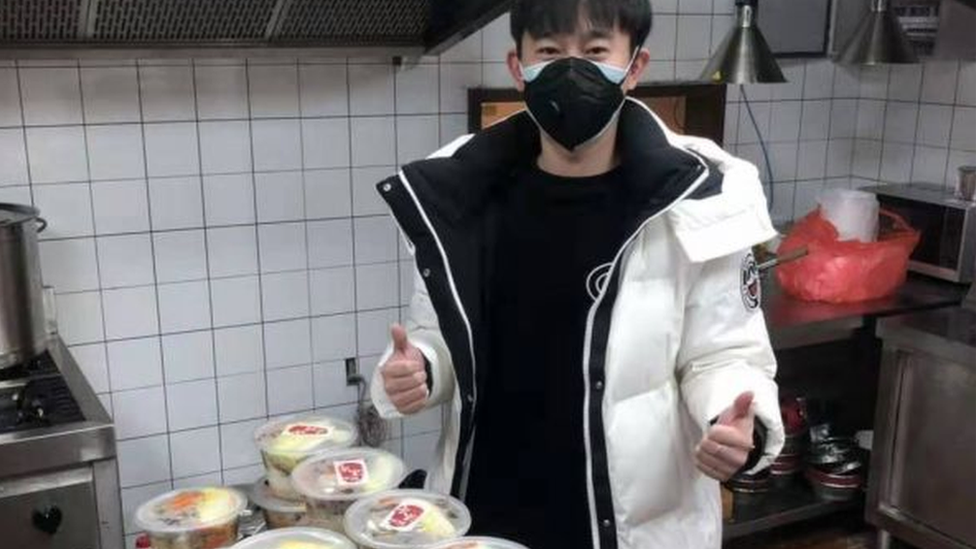
Li Bo is packing 200 lunch boxes for medical workers at a local hospital

Li Bo along with his chef spent days buying ingredients and cooking enough food to fit into 200 boxes. He told the news outlet on 26 January that he was in the process of finding enough boxes to pack the food into, adding that the meals would eventually be delivered to medical staff in Wuhan's Xiehe Hospital.
"I wanted to do my best to [make sure] the medical staff eat hot meals. I hope they get the nutrition they need and that will boost their immunity," he told the paper, adding that he plans to continue the food deliveries for as long as he can.
"I hope the city we love gets better soon."
The villager who donated 15,000 masks
Fears of the coronavirus have seen thousands across the country flocking to buy face masks - triggering a mask shortage in some places.
Masks have become such a valuable commodity that many on Weibo have joked that they would rather receive face masks instead of the typical monetary gifts given out during Lunar New Year.
One villager in Changde, a neighbouring province of Hubei where Wuhan is located, decided he would donate almost 15,000 face masks, according to news outlet the Xiaoxiang Morning Herald.
Hao Jin had last year worked in a mask production factory. He eventually resigned from the job but the company could not afford to pay him his salary. He was instead given 15,000 masks - worth 20,000 yuan (£2,207; $2,883) as a form of compensation.
He brought the masks home and forgot about them until he heard news of the mask shortage.
"I thought I would donate the masks I have to those in need, I hope they can be of more use and value to others," he said.
He kept a handful of the masks for his family, and distributed some to those in his village before donating the rest to people in his county.
Epidemic v pandemic: What's the difference?


Learn more about the new virus

Your questions: You asked, we answered
The story explained: How worried should we be?
Wuhan profiled: The city now in lockdown
In detail: Follow all our coverage here

- Published5 July 2022

- Published6 October 2021

- Published28 January 2020
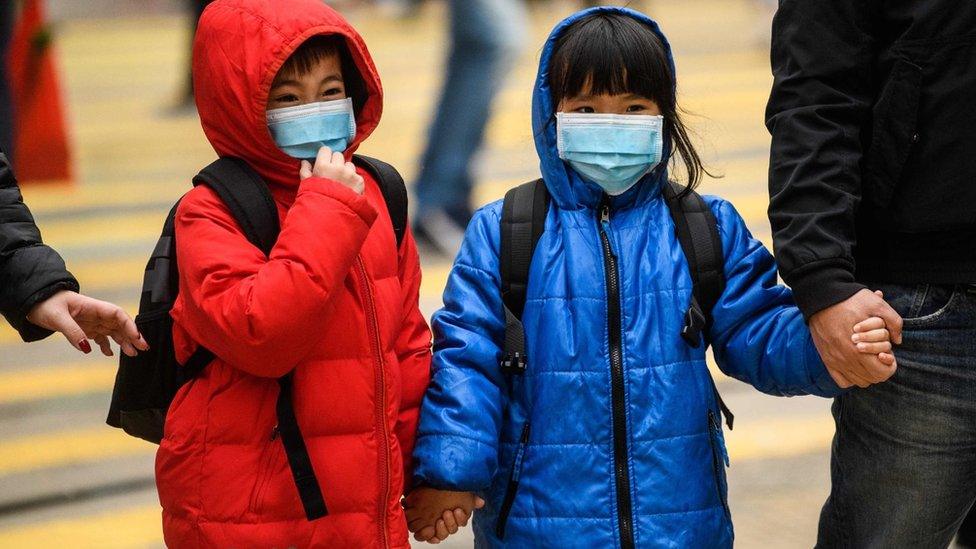
- Published18 October 2018
- Published27 January 2020
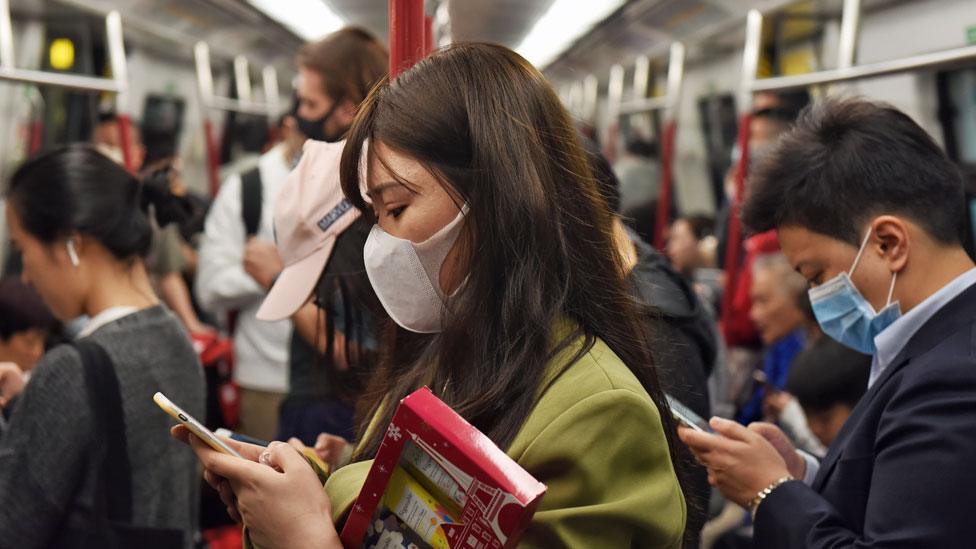
- Published24 January 2020
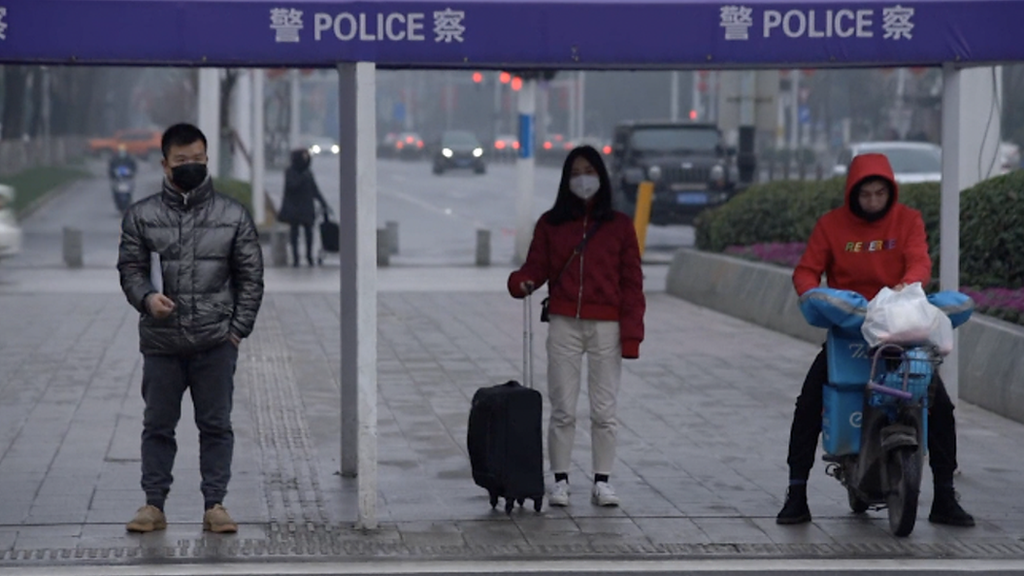
- Published24 January 2020
